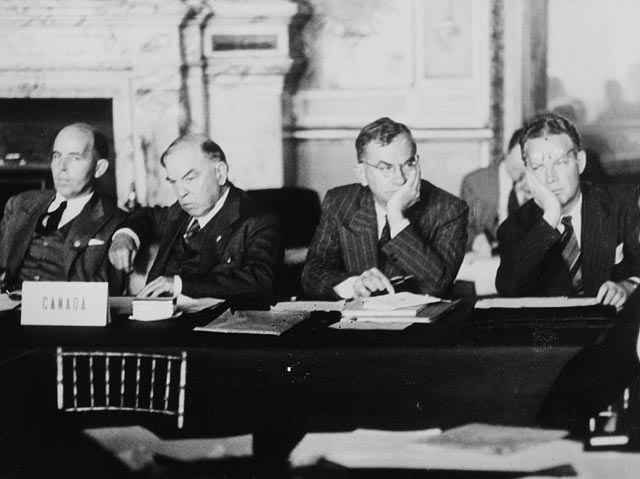LAD 32: Wilson's Fourteen Points of Peace
Summary:
Wilson recognizes that the Great War was partly caused by the secretive nature of numerous nations prior to the war. Because of this, Wilson claims that for peace to last, no more secret alliances must form. Wilson claims that international government relations must not be concealed from the public, the seas are open for navigation in both peace and war, economic equality for all nations in trade and commerce, national armaments must be reduced to the minimum amount to protect each nation, an impartial adjustment to colonial claims, outside influence must be evacuated from Russia and Russia must be given assistance to transition into freedom, similarly Belgium must be given its freedom, French territory must be evacuated and its control must once again be given to France, Austria-Hungary, Italian territories, Romania, Serbia, and Montenegro must be evacuted and their control must be restored to what it was prior to the Great War. The Ottoman Empire is near its end, but Wilson attempts to restore the Empire's freedom in his fourteen points. Poland is also given its freedom and Wilson lastly establishes the need for an association of nations, which becomes the League of nations.
Realistic or Idealistic:
Although Wilson's fourteen points are both realistic and idealistic, the majority of Wilson's ideas are idealistic because they encompass the agreement of all nations which is almost impossible. Ecspecially after such a significant world wide conflict as the Great War, it is unrealistic that all these nations agree to the fourteen points.
The Fourteenth Point:
This point outlines Wilson's idea of an association of nations, which eventually developed as the League of Nations. However, even though the association was Wilson's idea, America never actually joined the League of Nations, and the group was fated to fail.
The Paris Peace Treaties after WWII are similar to Wilson's Fourteen Points because after the Treaty of Versailles, whose harsh reparations eventually led to WWII, the nations realized they had to focus on rebuilding the countries involved instead of punishing the losers.
Wilson recognizes that the Great War was partly caused by the secretive nature of numerous nations prior to the war. Because of this, Wilson claims that for peace to last, no more secret alliances must form. Wilson claims that international government relations must not be concealed from the public, the seas are open for navigation in both peace and war, economic equality for all nations in trade and commerce, national armaments must be reduced to the minimum amount to protect each nation, an impartial adjustment to colonial claims, outside influence must be evacuated from Russia and Russia must be given assistance to transition into freedom, similarly Belgium must be given its freedom, French territory must be evacuated and its control must once again be given to France, Austria-Hungary, Italian territories, Romania, Serbia, and Montenegro must be evacuted and their control must be restored to what it was prior to the Great War. The Ottoman Empire is near its end, but Wilson attempts to restore the Empire's freedom in his fourteen points. Poland is also given its freedom and Wilson lastly establishes the need for an association of nations, which becomes the League of nations.
Realistic or Idealistic:
Although Wilson's fourteen points are both realistic and idealistic, the majority of Wilson's ideas are idealistic because they encompass the agreement of all nations which is almost impossible. Ecspecially after such a significant world wide conflict as the Great War, it is unrealistic that all these nations agree to the fourteen points.
The Fourteenth Point:
This point outlines Wilson's idea of an association of nations, which eventually developed as the League of Nations. However, even though the association was Wilson's idea, America never actually joined the League of Nations, and the group was fated to fail.
 |
| Wilson's Peace Policy after WWI |
 |
| Paris Peace Treaties, 1947 |
The Paris Peace Treaties after WWII are similar to Wilson's Fourteen Points because after the Treaty of Versailles, whose harsh reparations eventually led to WWII, the nations realized they had to focus on rebuilding the countries involved instead of punishing the losers.

Comments
Post a Comment